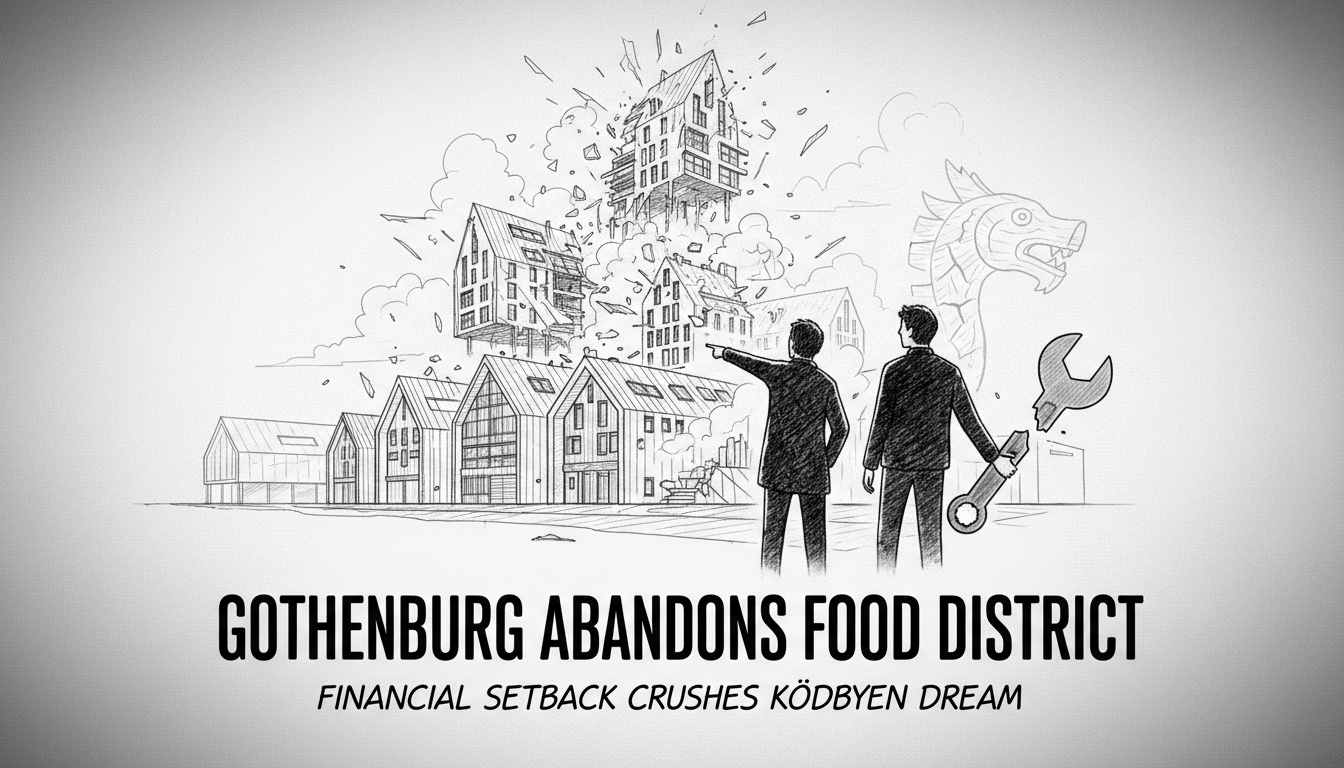Gothenburg city officials have scrapped ambitious plans to create a vibrant food and entertainment district modeled after Copenhagen's famous Kødbyen. The project aimed to transform an area into a bustling hub of activity both day and night.
City Planning Director Henrik Kant confirmed the decision. He said the numbers simply did not add up financially. The economic challenges proved too difficult to overcome.
This represents a significant setback for urban development in Sweden's second-largest city. Planners had looked to Denmark's capital for inspiration. They hoped to replicate the success of Copenhagen's meatpacking district, which has become a major attraction.
Gothenburg's political leadership had envisioned creating their own version of Kødbyen. The Danish original transformed former industrial spaces into trendy restaurants, bars, and cultural venues. It now serves as a model for urban regeneration across Scandinavia.
The cancellation raises questions about Gothenburg's ability to execute major urban development projects. City planners face increasing pressure to revitalize underutilized areas. They must balance ambitious visions with practical financial constraints.
This decision comes at a time when Swedish cities compete fiercely for tourism and investment. Urban development projects require substantial funding and careful planning. Gothenburg's struggle highlights the challenges many municipalities face.
The abandoned project would have created new nightlife options and dining establishments. It promised to generate economic activity and employment opportunities. Now those potential benefits will not materialize.
What does this mean for Gothenburg's future development plans? The city must reconsider its approach to urban regeneration. Officials may need to scale back ambitions or seek alternative funding models.
Similar projects in other Nordic cities have succeeded by partnering with private investors. Some combine public funding with commercial development. Others use phased approaches to manage financial risk.
Gothenburg's experience serves as a cautionary tale for other municipalities. Even well-conceived urban development projects can falter without solid financial foundations. The gap between vision and reality can be substantial.
The city now faces the challenge of finding alternative uses for the planned development area. Planners must reconsider how to activate underutilized urban spaces. They need solutions that balance ambition with financial practicality.
This cancellation represents more than just a failed project. It reflects broader challenges in Scandinavian urban development. Cities must navigate complex economic realities while pursuing growth and vibrancy.
Gothenburg residents and businesses await the city's next move. The need for dynamic urban spaces remains. The question is how the city will achieve this goal within its financial means.

